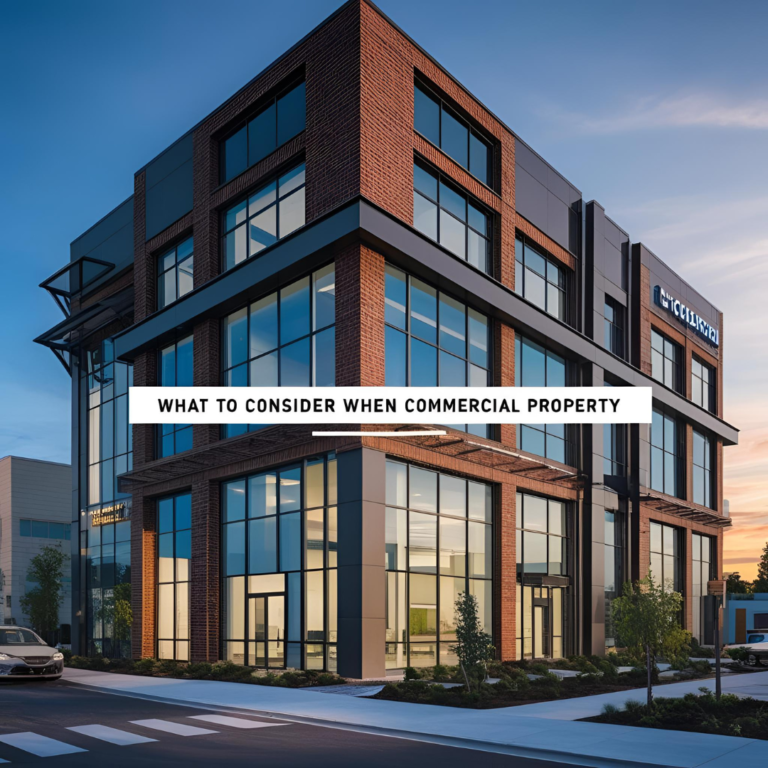Building a commercial property is a significant investment that requires careful planning and execution. Whether you’re constructing an office building, retail space, warehouse, or mixed-use development, there are several crucial factors to consider to ensure a successful project. Here are the key aspects to keep in mind when embarking on a commercial construction project.
1. Location and Zoning Regulations
The location of your commercial property plays a crucial role in its success. Before selecting a site, research factors such as foot traffic, accessibility, proximity to major roads, and the local market demand. Additionally, zoning regulations dictate the type of businesses that can operate in a specific area. Ensure your project complies with local zoning laws and obtain necessary permits before breaking ground.
2. Budget and Financing
A well-planned budget is essential to avoid cost overruns and financial setbacks. Consider all expenses, including land acquisition, construction costs, permits, labor, and unexpected contingencies. Explore financing options such as commercial loans, investor partnerships, or government grants, depending on your business model and financial capacity.
3. Design and Functionality
The design of your commercial property should align with its intended use. Work with architects and engineers to create a functional and aesthetically appealing design that maximizes space and efficiency. Consider energy-efficient solutions, modern layouts, and future expansion possibilities to enhance the property’s long-term value.
4. Compliance with Building Codes and Safety Standards
Building codes and safety regulations vary by location and property type. Ensure your project adheres to all legal requirements, including fire safety, accessibility for individuals with disabilities, and environmental impact standards. Hiring experienced contractors who understand these regulations will help prevent legal issues and ensure a smooth construction process.
5. Construction Timeline and Project Management
Timely completion of the project is crucial to avoid delays and increased costs. Develop a realistic construction timeline and implement effective project management strategies. Hiring a professional project manager can help oversee timelines, coordinate subcontractors, and address challenges proactively.
6. Infrastructure and Utilities
Ensure that your property has access to essential utilities such as water, electricity, gas, and internet connectivity. Additionally, consider the need for proper drainage systems, parking space, and accessibility features for both customers and employees.
7. Sustainability and Energy Efficiency
Incorporating sustainable building practices can reduce long-term operational costs and increase property value. Consider using energy-efficient materials, solar panels, smart lighting systems, and eco-friendly HVAC solutions to create an environmentally responsible commercial property.
8. Future-Proofing and Market Trends
The commercial real estate market evolves over time, so it’s important to design a property that can adapt to future trends. Flexible floor plans, smart technology integration, and modular spaces can make your property more attractive to future tenants and buyers.
9. Legal Considerations and Insurance
Ensure you have the necessary legal documents, contracts, and insurance coverage before starting construction. This includes property insurance, liability insurance, and warranties for materials and workmanship. Consulting with legal and insurance professionals can help safeguard your investment.
10. Hiring the Right Construction Team
The success of your project depends on the expertise of your construction team. Work with reputable contractors, architects, and engineers with a proven track record in commercial construction. Conduct thorough research, check references, and review past projects before finalizing your team.

